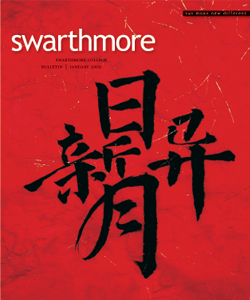Impatient for Obama
I am not a patient person.
Therefore, when Barack Obama achieved his historic victory, I wept with all those other veterans of the ’60s civil rights movement; but I couldn’t agree that I didn’t think I’d see it in my lifetime. I expected to see it way sooner!
I spent the lethal summer of 1964 in the Deep South, as an activist/journalist, traveling with SNCC to all the hotspots. And everywhere we went, somebody(s) died.
SNCC stood for Student Nonviolent Coordinating Committee, but don’t let that fool you. SNCC leader Stokely Carmichael and his buddies slept with rifles under their beds and drove everywhere at 80 miles an hour to avoid the locals’ favorite trick—two cars, one ahead of your car, one behind, forcing your vehicle to a stop. That’s how they got Goodman, Chaney, and Schwerner, whose bodies were finally found underwater in a putrid creek.
But their killings were one of the few that made the news. We started in Mississippi, marching with a bunch of (incredibly brave) children, protesting their being made to go to the back of the local chicken-shack instead of the front. They raised their fists and sang “We shall overcome” as they were carried off to jail in a pickup truck, along with the three local organizers, two young men, one woman.
That night, having been refused bail, the three adults were put out the door of the jail after dark, and a truckful of goons with guns drove past and cut them down.
Like the rest, I did what had to be done. But you were under an unsubtle threat every moment—the sheriff’s deputies following you with their shotguns, scowling at you in the diner, even if none at your table was black. In fact, there was a hierarchy to their hatred. Local blacks were, in fact, the least resented. More so were whites from the North. And most of all were journalists with cameras.
And how did they know where we’d be and what we would be doing? The ever-loving FBI, who sat in their cars outside of wherever we were meeting, taking their pictures and using their radios to report to the local constabulary. I was grateful to be a movie reviewer at the time that that travesty Mississippi Burning was released. I could at least set the record straight for my readers.
It didn’t take me long at Swarthmore to understand that we were being educated to be scholars and scientists. I was even offered two Woodrow Wilson fellowships upon graduation. I refused both, saying I knew they were meant for people who planned to teach, and I knew I wouldn’t, couldn’t. Teaching demands all of a person’s energies, and my greater priority was writing. And activism. I got an M.F.A. and have published two novels, poetry, and had a play performed in Edward Albee’s workshop at the Circle in the Square Theater in New York.
All of these things have been tools in the pursuit of peace and justice. Body and soul, as it were. So in some small way, I do feel I did what I could to pave Barack’s path to the White House. And it’s high time! But don’t think for a moment that race was the reason I worked for nearly two years to get the man elected. I never saw Obama as “the black candidate” any more than he did. I think we—and the world—are luckier than we deserve that a man of his intellect and political acumen has come along now, at this last minute, to rescue us from our greed. The task may be impossible, but thank you, thank you, Barack Obama, for trying.
Patricia Brooks ’60
Coupeville, Wash.
 Email This Page
Email This Page